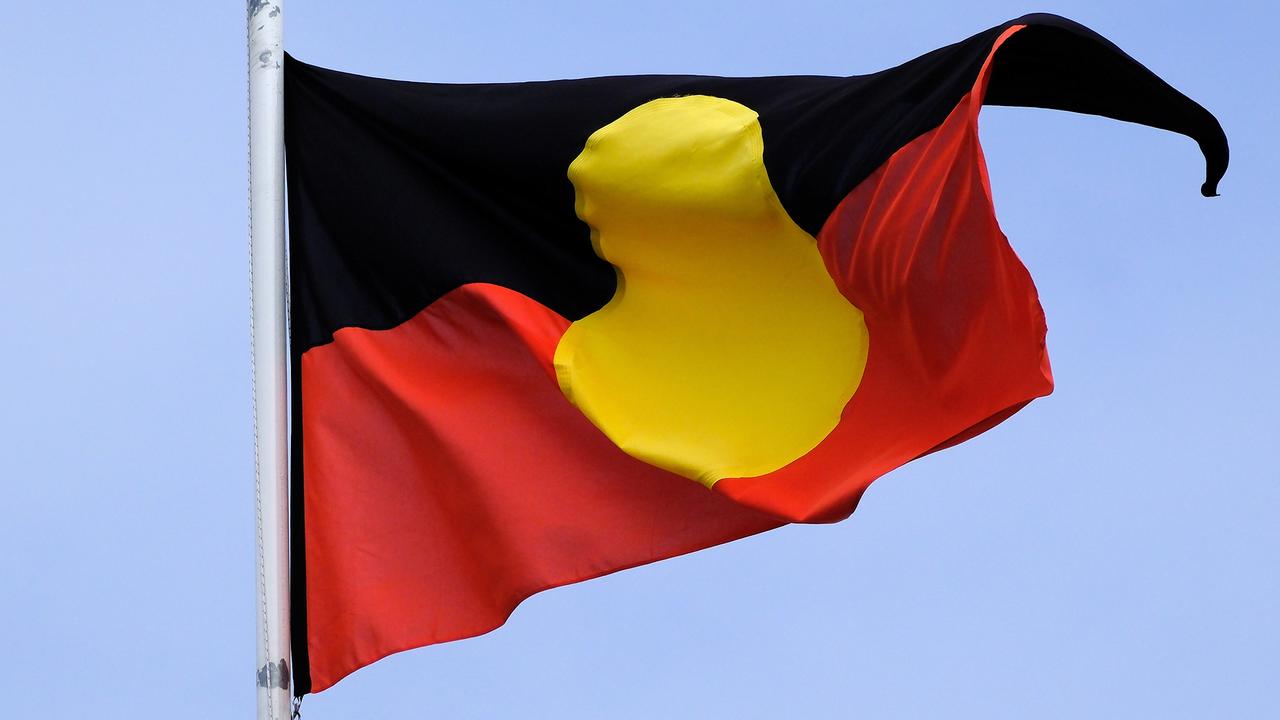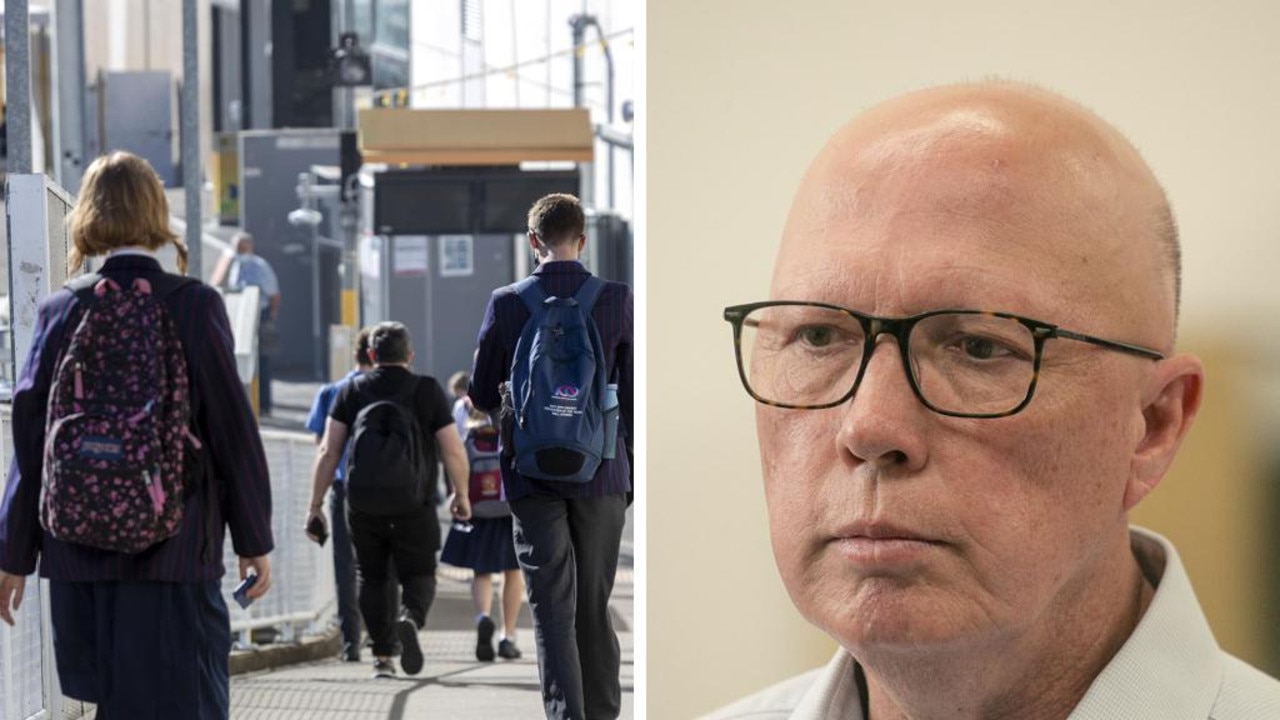The reality TV revolution our schools need
FORGET class sizes, or the public versus private debate. The real solution to Australia’s school crisis is suddenly staring us in the face.
AUSTRALIA is on the brink of a revolution in our schools, with a radical overhaul driven by the kids whose lives it will transform.
And it all comes back to a reality TV show.
For the first time the progress of students will be linked not just to their teacher but all the way to their teacher’s teacher.
Under tough new standards being developed by the government, teacher training institutions will be accredited based on how students ultimately respond to the teachers they produce.
The pioneering new approach is driven by the guru behind the ABC reality show Revolution School, which famously transformed a struggling public high school in outer Melbourne into one of the leading schools in the state.
Internationally renowned education expert John Hattie says not only does the way we teach have to change but the way we teach our teachers must too.
He told news.com.au he was sick of teacher training institutions reporting only what they taught their graduates without focusing on how that ended up in the classroom.
“I couldn’t give a s**t how you teach,” he says. “I care about the impact of your teaching.”
Prof Hattie is director of the Melbourne Education Research Institute as well as chair of the Australian Institute for Teaching and School Leadership (AITSL), which has been set up to advise the Federal Government as it overhauls Australia’s flagging education system.
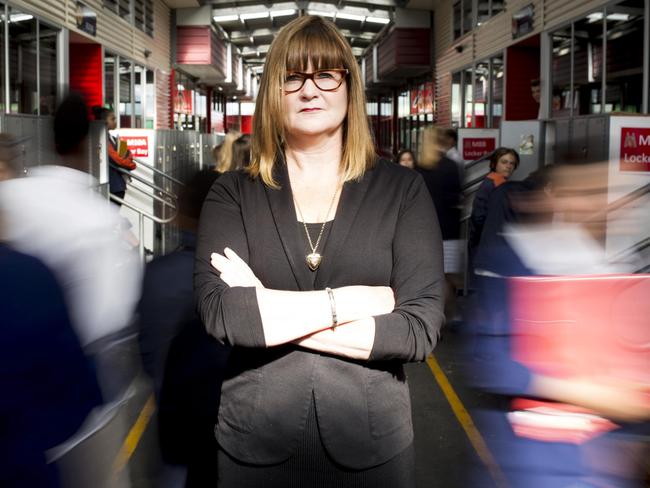
His book Visible Learning is, according to the University of Melbourne, “believed to be the world’s largest evidence-based study into the factors which improve student learning”. It combined 50,000 other smaller studies and ultimately involved 80 million students.
In a nutshell, it found that teachers should talk less and listen more.
Almost miraculously in the current political environment, this approach has bipartisan support. Labor has even accused the Turnbull Government of pinching its own ideas, which in politics is about as close to a compliment as you can get.
Education Minister Simon Birmingham is understood to be very close to the thinking of Prof Hattie and Labor’s education spokeswoman and deputy leader Tanya Plibersek told news.com.au: “I think the Hattie approach is fantastic.”
According to one senior insider developing the new scheme it is nothing short of a revolution.
“It’s absolutely a revolution. It’s going to take a while to flow through — you can’t make these things happen overnight — but it will happen.”
Senator Birmingham has adopted a cool and clinical philosophy since becoming minister 18 months ago but his resolve is clear.
“Every decision that’s made and every dollar that’s spent needs to come back to answering a simple question — what does the evidence show works best?”
And Ms Plibersek agrees: “All the research agrees that the most important thing to the child’s success in the classroom is the teacher.”
Critically, Ms Plibersek says that while she still wants to see more needs-based funding for schools, the Opposition “would never hold reform hostage” and supports maximum transparency in measuring student progress as well as teachers and training institutions being driven by that.
This is an almost unprecedented aligning of the planets when it comes to real reform that will transform our kids and ultimately our country.
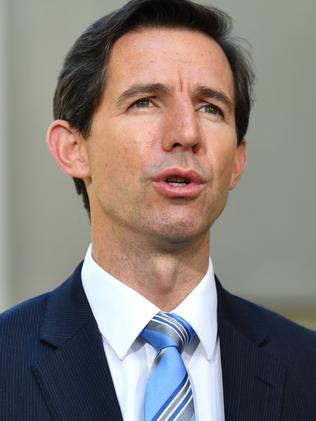
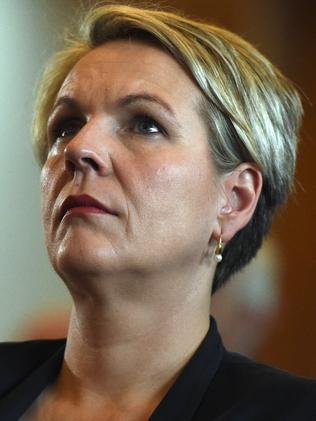
A MAJOR BREAKTHROUGH
And a major breakthrough could come in mere weeks, with the Council of Australian Governments’ Education Council set to meet in Hobart on April 7.
It is expected there will also be significant progress on fixing school funding so that wealthy private schools are not overpaid with taxpayer dollars, which Labor has indicated it is also willing to consider.
The top-to-bottom schools overhaul follows a string of international reports showing Australia falling behind in education.
The latest figures from the Trends in International Mathematics and Science Study found Australia had fallen behind Kazakhstan in maths and science — described by the Centre for Independent Studies education research fellow Jennifer Buckingham as “dismal”.
The following week the Programme for International Student Assessment found Australia had slipped behind nine countries — including New Zealand.
The Australian Council for Education Research’s Dr Sue Thompson, who collated our portion of the data, described school performance as being in “absolute decline”.
Prof Hattie is even more brutal, saying the obsession with more cash over better quality of teaching was destroying Australian education.
“There’s a lot of ‘Just give me more money and leave me alone’ and it’s killing us,” he says.
“Everybody knows we’re going backwards but it’s very hard to get that on the table. We want more money to do what we were doing yesterday which is not the right answer.”
WHAT REALLY MATTERS IN THE CLASSROOM
As demonstrated by Revolution School, as well as data and research across the world, the number one factor in a student’s performance isn’t school resources or class sizes but how the teacher engages kids in the classroom.
The new push means that for the first time student progress will be tracked not just back to the teachers but to the teachers’ teachers, with tough new standards for training providers based on how their methods work not on their graduates, but on the kids their graduates end up teaching.
It’s so simple it’s radical.
The government is significantly toughening up the accreditation process for initial teacher education programs, which Prof Hattie says has been ridiculously soft.
Providers must now apply for accreditation against a new strengthened standard. Some may well fall short.
“In the history of this country we’ve never denied accreditation to a single institution,” he says.
Under the new scheme providers would need to show “evidence of impact”. It is linked to an Australian Institute for Teaching and School Leadership report that states:
“It is a fundamental expectation that every teacher education graduate will have met the Graduate Teacher Standards, succeeded on the teaching performance assessment and demonstrated a positive impact on student learning.
“Equally, it is expected that graduates will continue to have a positive impact throughout their teaching career.
“It is acknowledged there are measurement challenges in assessing teachers’ impact on student learning, but it is expected that improved mechanisms will develop over time, given the importance of measuring this impact.”
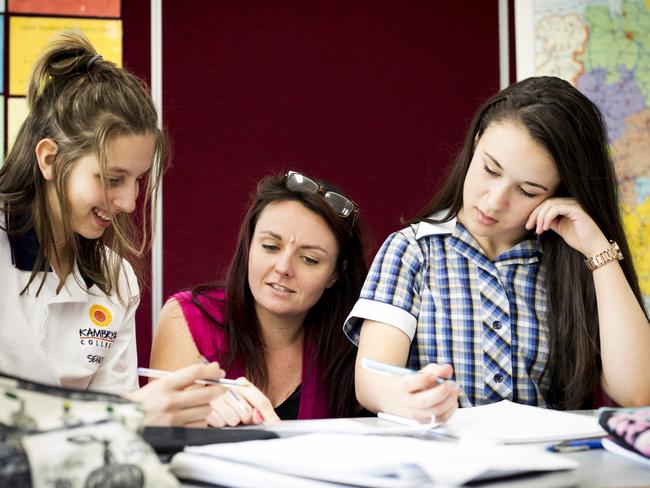
In other words, the accreditation of training providers will depend on the performance of teachers not in their institutions but in the classrooms of the future.
Prof Hattie admits the approach of constantly measuring teacher performance by student progress or “growth” had met resistance by entrenched interests, including teachers unions and the odd state government.
“The union at the moment has a black ban on AITSL,” he says, only half joking.
In response, the Australian Education Union says it was actually represented on the AITSL Board until 2015, when former minister Christopher Pyne restructured it.
“We’ve not really been part of their work since then, but we haven’t black-banned them,” a spokesman says.
He says the AEU supports measuring teacher performance and pay against set professional standards — a big improvement on the previous model based on years of service — but not on teachers being measured by student achievement.
“On the general idea of paying teachers according to student achievement, there are massive practical issues with what you measure, how you measure it and how you compensate for the different social backgrounds of schools. As far as I know, there’s no school system, public or private, that makes it the basis of teacher pay, including high-performing Asian ones like Singapore.”
But Prof Hattie says this is because schools do not have the right tools to measure student growth.
“When you give the teachers the skills, the resources, they’re hungry for it,” he says.
The key is regular ongoing feedback and measurement rather than just end of year report cards or NAPLAN tests.
“How do we help the teachers use that? How many of their kids have grown? There’s no calibration,” Prof Hattie laments.
“Teachers don’t have a common conception of progress. It’s reporting back to teachers, giving the resources to teachers so they can see who’s making progress.”
IT’S NOT ABOUT ‘TEACHER BASHING’
It is also vital to be able to talk about teacher performance without being seen to “bash teachers”.
“How do you get a debate about expertise without getting a debate about bad teachers?”
Even parents, he warns, have fallen prey to misguided ideological thinking, often focusing on issues like class sizes that the research says do not really matter: “The things they want the resources for are the things that impact the least.”
Meanwhile, the great dance of the federation continues, with the states instinctively milking the Commonwealth for all the money they can get.
“Every time the government puts a dollar in, the states take a dollar out,” Prof Hattie says.
“I can tell you, Oliver Twist is alive and well.”
Or, as the insider puts it: “Essentially we’ve been handing over this cash to the states and they’ve been doing all this ideological s**t that doesn’t make a difference.”
Meanwhile the crippling taboos and sensitivities that have always haunted political reform remain.
Prof Hattie is at pains to stress that his approach is nothing like the much-maligned NAPLAN “National Assessment Program — Literacy and Numeracy” testing, saying he’s scared to even use the word “assessment”.
“You can’t do that!” he jokes. I think.
But there’s one thing even more shocking, more galling and more forbidden about the schools revolution that might just save our nation. A truth that the former Professor of Education at Auckland University dare not speak and one that should send chills down the spine of every red-blooded Australian.
“I should never say we’ve already done it in New Zealand.”


